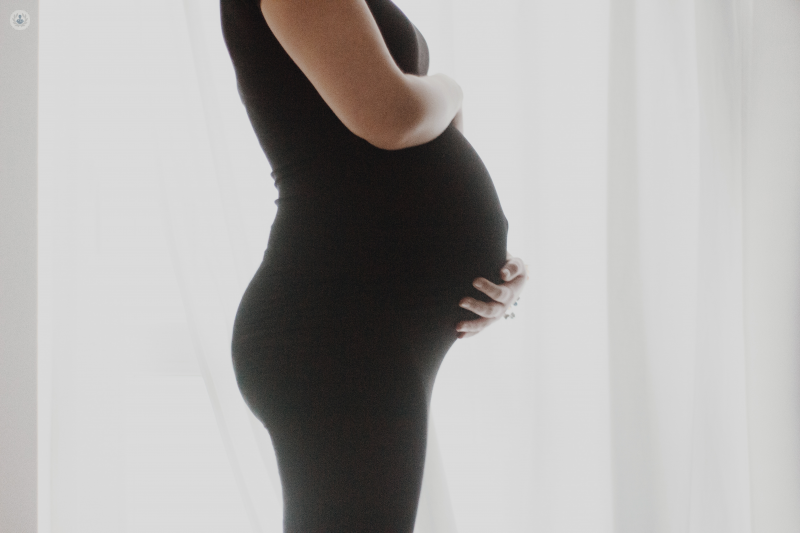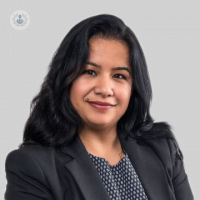Everything you need to know about freezing your eggs
Escrito por:Having children is a big decision and perhaps not one you are ready to make right now. However, circumstances might mean that you can’t wait, or perhaps you simply want to take precautions so that you will be able to have a child in the future. In this case, freezing your eggs could be an option. Fertility specialist Dr Malini Uppal explains.

Can you freeze your eggs?
Yes, you can freeze your eggs. We have been freezing eggs from a long time. However over the last decade, the new process of freezing eggs by the fast freezing process of vitrification has enabled us to give lots of women a very reassuring option of freezing eggs.
You might want to consider freezing your eggs if:
- You are suffering from illnesses like cancer, whereby you need to undergo chemotherapy, which can affect your fertility in future.
- You are suffering with severe endometriosis, where you have to undergo surgery to treat it.
- You want to delay your fertility because of your career or because you're not with the right partner at the moment (known as elective egg freezing or social egg freezing). You don't need to rush into a relationship. You can actually freeze eggs to allow yourself a sigh of relief and not have that pressure on you.
- You were assigned female at birth but are undergoing gender reassignment surgery, to have an option of biological children in the future.
- You have a high-risk job, in the in Armed Forces, for instance.
What is the egg freezing process?
The first step would be to make an appointment to see your consultant. There will be assessment of your ovarian reserve and your medical history.
Ovarian reserve assessment includes:
- A transvaginal scan – this looks at your ovaries and counts the number of follicles, which will give the current status of your ovary
- A blood test of anti-mullerian hormone – this tells us your current fertility status.
Following that, a protocol is put in place individualised just for you. You will see the nurse, who will carry out some blood tests, including infectious screening of HIV, hepatitis and so on. This screening is not to check your ability to freeze eggs, rather it's to know if we need to store your eggs away from the others because of the risk factors.
Once that's done, you start your medication (gonadotrophins), which you take for around ten days to two weeks. You will be injecting yourself. We monitor you by doing transvaginal scans and checking the oestrogen level in your blood. Once the follicles are ready, then we do the egg retrieval, which involves using a transvaginal ultrasound-guided aspiration; this is done under sedation. It's usually a 15-20 minute process.
Can everyone freeze their eggs?
Yes, everyone can freeze their eggs. However, it is slightly tricky to say when you should freeze your eggs. It depends on your ovarian status and your current ovarian reserve and the final outcome of egg freezing is also dependent on your age. The number of eggs and the age at which you froze the eggs are the two important parameters to know the outcome of the whole process of egg freezing.
We always say the younger you are, the better the outcome will be for your frozen eggs. I would say that if you are in your early thirties, this is a good time to start thinking about if you want to freeze your eggs and that would be the right time to take action to get the best possible outcome.
Can you freeze your eggs after 40?
Yes, you can freeze your eggs after 40. It is quite a tricky question because it's very difficult to assess biologically how well someone will do with the process of egg freezing because there's so much variability. It varies person to person how your ovaries age or how your eggs will age, making it such an uncertain factor in egg freezing. We won’t know till we have thawed those eggs and created embryos to see what the embryo quality is.
We can freeze eggs after 40, but we have to understand that the quality of the eggs declines and the number of eggs also decreases after you are 40; therefore the outcome might not be as good as if we did it earlier. You might end up doing multiple cycles to freeze the desired number of eggs to get a reasonable outcome later on.
How long can eggs be frozen for?
The standard period for which eggs can be kept frozen is a maximum of ten years. However, there are certain conditions or circumstances in which they can be stored up to 55 years – for example, if you're likely to become prematurely infertile due to treatment of chemotherapy for cancers.
How much does it cost to freeze your eggs?
The cost of freezing eggs can vary dramatically. It depends on your age and ovarian reserve. For someone who is younger or in their early 30s and has got a very good ovarian reserve, we're likely to do only one cycle and we'll get the desired number of eggs frozen in a single cycle to have the best possible outcome later on. Someone who does it a bit later, say late 30s or 40s, on the other hand might have fewer follicles, fewer eggs collected per cycle and therefore we would recommend IVF batching. This means collecting three cycles back to back. As you can imagine, this requires three times the medication and the cost will be much more for a person who's doing this later on than earlier on.
Because of the variability of every individual, the number of eggs collected, and the amount of medication used, the costing is different for every individual. Everything will be tailor-made for each individual case and therefore it's very difficult to give you overall “normal” cost.
Book an appointment with Dr Uppal at her Top Doctors profile.



